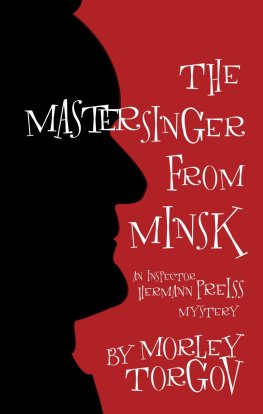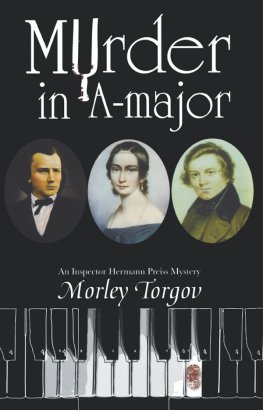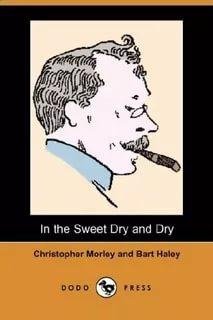Morley Torgov - The Mastersinger from Minsk
Here you can read online Morley Torgov - The Mastersinger from Minsk full text of the book (entire story) in english for free. Download pdf and epub, get meaning, cover and reviews about this ebook. genre: Detective and thriller. Description of the work, (preface) as well as reviews are available. Best literature library LitArk.com created for fans of good reading and offers a wide selection of genres:
Romance novel
Science fiction
Adventure
Detective
Science
History
Home and family
Prose
Art
Politics
Computer
Non-fiction
Religion
Business
Children
Humor
Choose a favorite category and find really read worthwhile books. Enjoy immersion in the world of imagination, feel the emotions of the characters or learn something new for yourself, make an fascinating discovery.
- Book:The Mastersinger from Minsk
- Author:
- Genre:
- Rating:4 / 5
- Favourites:Add to favourites
- Your mark:
- 80
- 1
- 2
- 3
- 4
- 5
The Mastersinger from Minsk: summary, description and annotation
We offer to read an annotation, description, summary or preface (depends on what the author of the book "The Mastersinger from Minsk" wrote himself). If you haven't found the necessary information about the book — write in the comments, we will try to find it.
The Mastersinger from Minsk — read online for free the complete book (whole text) full work
Below is the text of the book, divided by pages. System saving the place of the last page read, allows you to conveniently read the book "The Mastersinger from Minsk" online for free, without having to search again every time where you left off. Put a bookmark, and you can go to the page where you finished reading at any time.
Font size:
Interval:
Bookmark:
Morley Torgov
The Mastersinger from Minsk
Prologue
It must have struck the composer, the conductor, the chorusmaster, the stage director, the house manager, even the old impresario Mecklenberg who thought hed seen and heard everything in his time all of them solemnly assembled side-by-side in red, plush seats in the front row of the orchestra section that what they were about to witness up there on the bare stage was nothing short of a medieval duel: two titans prepared to face each other at full tilt in mortal combat. Each combatant was a tenor; even in the dimness of the place (the house lights were only partly on) there was about each of them the enviable radiance of youth, physical strength, ambition, and readiness. Each hoped and silently prayed that when this was over he would be the one given the sign an imperial nod from the man seated at the centre of that stern-faced company down there in the front row.
To the tenor so touched by fortune would go the leading role in the composers new and long-awaited opera. To the other, the loser (if one could be said to be a loser in such auspicious circumstances), would go the secondary role, that of the character doomed to an ignoble downfall at the operas tumultuous climax. At the composers insistence, for this occasion the audition pianist had been discharged; the two tenors were to sing without the benefit of accompaniment, the better to test their ability to thread their way through the unconventional vocal twists and turns and changes of key which made the song assigned to them for this occasion unlike any other they had ever sung or dreamt they would be called upon to sing.
The older of the two singers was stocky and broad-chested. Barely thirty, he was a bit on the portly side for a man of his years, but there were compensations: flaxen hair down to his shoulders, silvery-blue eyes, a light-skinned and fresh complexion. Almost perfect. Almost exactly what the composer envisioned when he conceived the part.
The other candidate was taller, his figure carved like that of a Roman statue. Dark hair and blackish brown eyes set in an olive-skinned face were certainly the opposite of what the composer had in mind. His brief resum gave his age as twenty-six; it contained only scant details of his career to date.
Both singers performed with supreme confidence, even brilliance, the older of the two singing first in recognition of his seniority. Each exhibited the voice of a true heldentenor. Given the peculiarities of the music, the few flaws that were heard the odd flatness or sharpness, perhaps a wrong inflection were understandable (though to be sure the composer would have made a mental note of each slip, no matter how minor).
So it would be close. Less than a heartbeat would separate the two when the choice was made.
When the audition concluded, all eyes quickly turned to the composer. By his own tyrannical decree it was he and he alone who had the final word on every detail from the buckles on the choristers shoes to the colour of the sky on the painted backdrops to the most important detail of all the casting of the principal roles and, in particular, the principal tenor role upon which the success, or failure, of the new opera would depend.
The conductor, seated closest to the composer, dared to lean toward him to offer a whispered suggestion, only to be stifled with a dismissive wave of the composers hand. The others in the front row knew better than to venture their opinions. On the stage stood the tenors, maintaining a respectful and somewhat cautious distance from each other, their bodies rigid, their expressions tense.
For a moment or two there was nothing but dead silence.
Suddenly, startling everyone, the composer sprang from his seat. He was beaming, even ecstatic, as though hed seen a miracle. Henryk Schramm! Henryk Schramm! He shouted the name over and over again, his voice echoing across the vast empty auditorium. Motioning excitedly for the young singer to advance to the apron of the stage, he called out, You you are my Walther von Stolzing, Schramm! Why have I not heard of you before? Never mind, Schramm, God Himself sent you here! Still excited, the composer turned to the stage director. The hairs too dark, of course; hell need a blond wig. The eyes we can do nothing about, but the skin tone must be lightened. His height is just right, so the heels of his boots wont need building up. And no padding in the shoulders of his costumes. The mans got the physique if not the face of a true Franconian knight! The stage director did not bother to agree or disagree. After all, what was the point?
The composer shot a steely glance at the impresario. What are you waiting for, Mecklenberg? he demanded. I want a contract for this man ready for signature before I leave for lunch.
The victorious tenor took a step forward. Maestro Wagner? His voice was timid, a far cry from the voice with which, only minutes earlier, he had won the coveted lead role. The composer didnt appear to have heard him, so he repeated, a bit more forcefully, Maestro ?
The composer swung around to glare at the singer. It occurred to Schramm that the man he was looking down at from the stage a man considered (grudgingly by some, admiringly by others) the musical giant of the century was anything but a physical giant. If anything prominent stood out, it was, of all things, his chin, a sharp outcropping of skin and bone which, combined with the fierceness of his eyes, was enough to discourage any form of challenge to his authority, even from men who towered over him in body or in rank. His mouth was a simple slit unsoftened by lips. Everything converged around a hawk-like nose. Taken together, the features of his face left a large question as to whether he had ever been a child, or laughed, or made love.
Well, what is it, Schramm? the Maestro snapped. That was something the young tenor would have to learn: Maestro Richard Wagner was not accustomed to being interrupted. Well, speak up.
I just wanted to thank you for
Wagner cut him off. You can thank me by singing the Prize Song on the night of the premiere the way you sang it here this morning; only better, of course.
To the other tenor, the older and shorter one, now waiting awkwardly off to one side of the stage, Wagner announced, You will do nicely for the role of Beckmesser, Grilling.
Wolfgang Grilling was not pleased, nor was he able to conceal his displeasure. But Maestro, he said, coming forward, with all due respect, may I remind you that you yourself chose me to sing the role of Erik in The Flying Dutchman just two summers ago in Dresden. Surely
Surely what? Do you want the part of Beckmesser or not, Grilling? Yes or no?
But the simple fact is
Again Wagner cut in. The simple fact, Grilling, is that I have spent sixteen years of my life giving birth to this opera. It is my career, not yours, that is at stake. Do you understand? For the last time, then, yes or no?
Grilling replied with a sullen yes, then glared at his manager cowering in the shadows. The manager responded with a hapless shrug as if to say One might just as well argue with the wind.
It was an effort for Wagner to climb the half-dozen steep steps to the stage. The early spring dampness which seeped into Munichs ancient buildings, including the opera house, also found its way into Wagners bones, moving him to mutter curses as he completed the ascent and hobbled to centre stage. Once there, however, he was every inch in command.
What followed had all the pomp and import of a royal proclamation. I want everyones attention, he began, pausing until he was satisfied that the hall was as quiet as a tomb. He continued: I have concluded all the necessary arrangements with management. The first performance of
Font size:
Interval:
Bookmark:
Similar books «The Mastersinger from Minsk»
Look at similar books to The Mastersinger from Minsk. We have selected literature similar in name and meaning in the hope of providing readers with more options to find new, interesting, not yet read works.
Discussion, reviews of the book The Mastersinger from Minsk and just readers' own opinions. Leave your comments, write what you think about the work, its meaning or the main characters. Specify what exactly you liked and what you didn't like, and why you think so.












